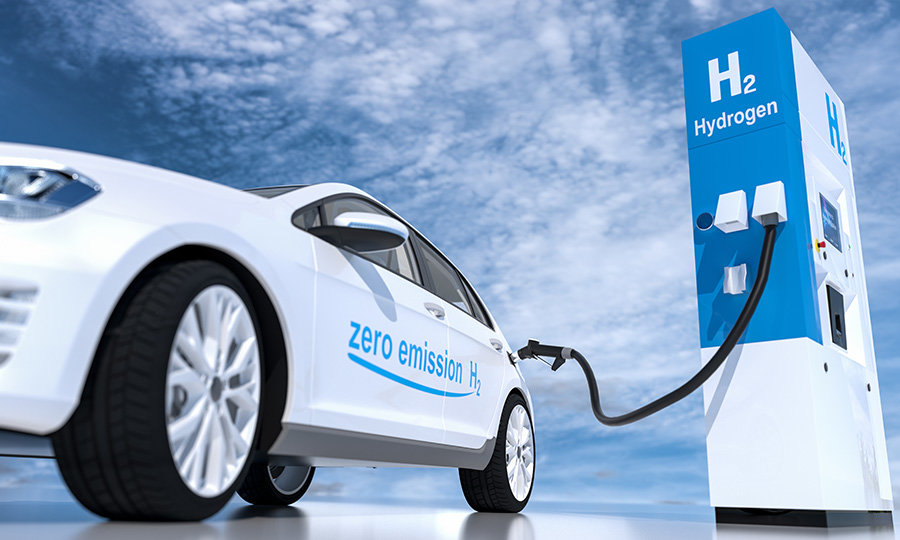Auxiliary power source for fuel cell vehicles

Target Industry
- 【Manufacturing】Automobiles
- 【Traffic】Rolling stocks / Tram / Bus
- 【Power Supply】Fuel cell / Power supply system
Background and Challenges
Due to SDGs (Sustainable Development Goals) and consideration for environmental issues, the conversion from gasoline vehicles to environmentally friendly vehicles is rapidly progressing all over the world.
However, there are concerns about resource depletion to fully electrify the vehicle with only the lithium-ion battery (LIB), which is currently the mainstream in electric vehicles. Another problem is that electric vehicles (BEVs) that run only on batteries have a long charging time.
On the other hand, "fuel cell vehicles (FCVs)" that generate electricity from hydrogen and oxygen and are driven by motors are expected as future vehicles. Fuel cell vehicles draw electricity from the chemical reaction of hydrogen and oxygen, so they don't need gasoline or huge batteries. Since it does not use an engine, it has the characteristic of zero carbon dioxide emissions. It is the car with the least environmental load at the moment.
However, fuel cells have the disadvantages that they cannot utilize regenerative energy, have slow response to load fluctuations, and cannot fully demonstrate the acceleration performance that is characteristic of EVs. Therefore, it is possible to combine the merits of a fuel cell vehicle and an EV by loading a high-output auxiliary power supply on the fuel cell vehicle.
Technical Advantages of Hybrid Super Capacitors (HSC)
Hybrid Super Capacitors have the characteristics of high rate current input / output characteristics, long life, and high safety, and can compensate for the weaknesses of fuel cells, which are high capacity but vulnerable to load fluctuations.
High Rate Current Input / Output Performance
- Contributes to improving hydrogen fuel efficiency by assisting output during sudden acceleration and regenerating brakes.
High Reliability and Long Life
- Since it has a long life and high reliability, it can also be used as a backup power source in an emergency in combination with automatic operation.
High Safety
- Fuel cells that use hydrogen fuel cannot be ignited by any chance. Since the positive electrode of the Hybrid Super Capacitor is activated carbon, it does not cause thermal runaway like the metal oxide used in lithium-ion batteries, so high safety can be achieved.
Energy Storage Device Comparison
| Hybrid Super Capacitor (HSC) | Lithium Ion Battery (LIB) | Electric Double Layer Capacitor (EDLC) | Lead-acid Battery | |
|---|---|---|---|---|
| Voltage | ◎ | ◯ | △ | △ |
| Energy density | ◯ | ◎ | △ | ◯ |
| Safety | ◯ | △ | ◯ | ◯ |
| Lifespan | ◎ | △ | ◯ | △ |
